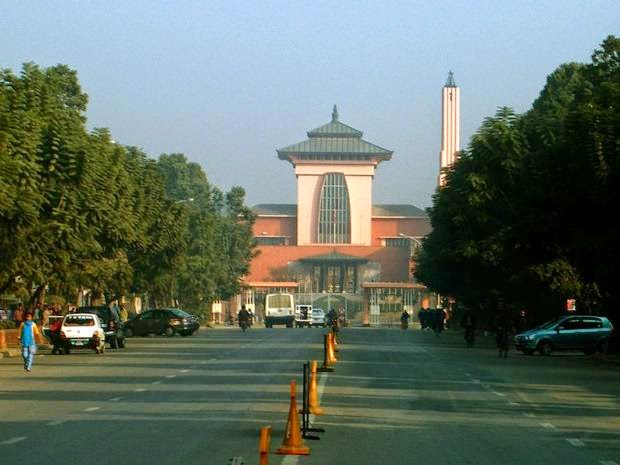10 awesome books I read in 2014
Anyway, here are the 10 awesome books I read in 2014:
1. Think and Grow Rich by Napolean Hill
While reading this book I was constantly thinking, why the hell didn't I read this book earlier? This book is considered the father of motivational literature. I must say the book lives up to the hype. This book is not a get rich quick book though. It is about how letting yourself consumed by an idea or a passion can ultimately land you riches. It is about how our thoughts eventually manifest themselves in reality through our actions. If you are consumed by the idea of getting rich, you will get rich eventually if you persist enough. I think, this is among the few motivational books that I really liked and found insightful.
3.Good to Great: Why Some Companies Make the Leap... and Others Don't by James C. Collins
The author with his research team analyzed 28 companies over the period of 5 years to determine what made companies leap from good to great. The author has derived common aspects of all those great companies. All of those companies had level 5 leadership, culture of discipline, used technology as accelerators. The concept of Stockdale Paradox (Being brutally honest with your shortcomings but optimist about the future) is extremely useful not only in business but in personal life as well.
4. Losing My Virginity: How I've Survived, Had Fun, and Made a Fortune Doing Business My Way by Richard Branson
It is the autobiography of Richard Branson, probably the most adventurous entrepreneur in the world, who, while not creating a billion dollar company, is busy attempting and setting world records. In this book, he recounts his journey since childhood and how he ended up creating 8 billion dollar companies from scratch. Need I say more?
5. Radha by Krishna Dharabasi
Krishna Dharabasi is one of the more creative Nepali writers out there. In this novel, Dharabasi has woven a tale that breaks the patriarchal storyline created by our religious texts and stories. Unlike in the religious scriptures, in this novel, Radha has been portrayed an independent woman fighting for her identify and respect. Dharabasi is right to portray the Mahabharat war as a war created by the egos of the elites where thousands of commoners died for nothing. Amazing book!
6. Forces for Good: The Six Practices of High Impact nonprofits by Leslie Crutchfield
This book is to non-profits what "Good to Great" is to for-profits. The authors conducted a research among the most effective non-profit organizations in the world to find out the common things among them. Like, Good to Great, this book also have several very good lessons, which if applied, can take your non-profit organization and the cause it champions to newer heights. I think every Nepali NGO personnel should read this book as they seem to have understood none of these lessons.
 7. An American Life by Ronald Reagan
7. An American Life by Ronald ReaganRonald Reagan lived an amazing life. Coming from a humble beginning, he started his career as a sports commentator and later became a very successful Hollywood actor of his time. Then after retiring from the career, he started working as a salesperson for General Electric which ultimately became a platform for him to start a political career. His political career started as the Governor of California and ended up as one of the most popular American presidents in recent history. In this memoir, 'The Great Communicator" tells about all the twists and turns in his life. He has also shared about the rationale behind the decisions he made as a president and how he contributed in ending the cold war.
8.Wild Swans: Three Daughters of China by Jung Chang
If you want to read only one book out of my list, please read this one. This is the story of three generations of women in China. The author's grandmother lived in the times of feudal lords where women were treated like dirt, her mother lived in the times of communist revolution and Chang grew up under the rule of Mao. The author provides the readers a window to the life of commoners under Mao's China, so called paradise of the peasants and workers. The book should be read by every Nepalese, especially those who dream of establishing a Mao's paradise in Nepal.
9. Kamalari Dekhi Sabhasad Samma by Shanta Chaudhari
Shanta Chaudhari, who rose from the life of a modern slave into the position of a parliamentarian, is truly an inspirational figure. In this book, she recounts her unlikely journey full of struggles and hurdles. Her life if a testament that if a person wants, he or she can overcome any barrier and achieve success, provided that they are passionate enough and persistent enough.
10. The Art of the Start: The Time-Tested, Battle Hardened Guide for Anyone Starting Anything by Guy Kawasaki
This is a straight-forward, no nonsense book for any aspiring entrepreneur to help them start their enterprise right away. The author provides practical tips and tricks for starting up along with lessons to keep in mind after that. One of the tips he provides in the book is start your company's name with earlier letters in the alphabet so that you get first listing in any event or publications. Another suggestion that I liked is: forget about the mission statement, have a mantra instead. There are such lessons in every page of the book. A must read for any aspiring entrepreneur.
Well, that is my list. What do you think about it? Have you read any of these books? If yes, do share your thoughts in the comments below.







































